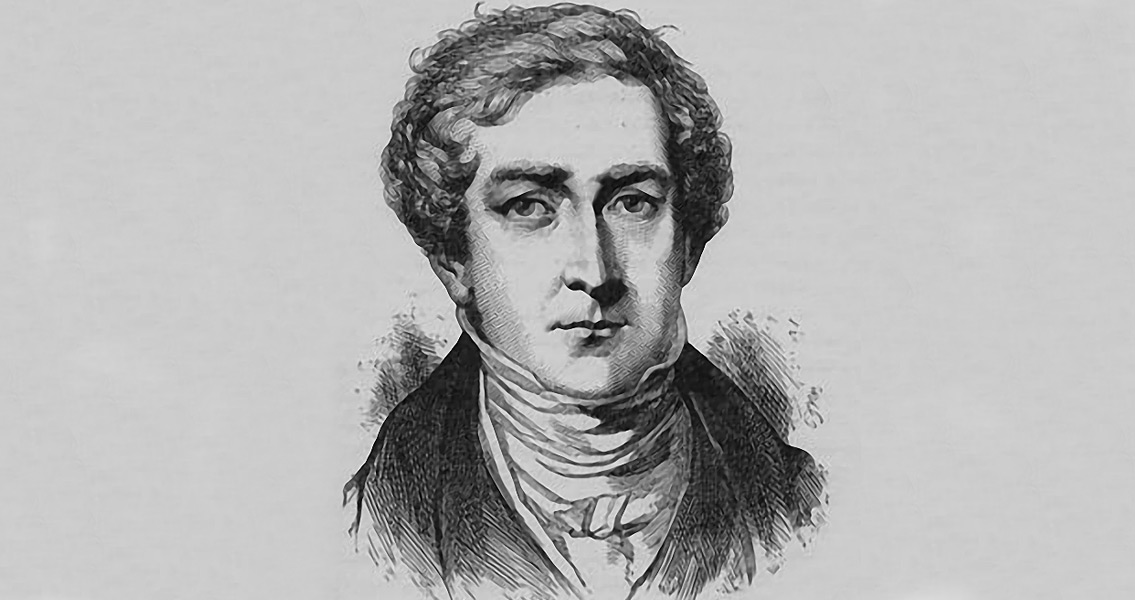<![CDATA[The 5th February marks the anniversary of the birth of Robert Peel, one of the most important British Prime Ministers of the Victorian era. Peel was born in Bury, Lancashire, in 1788. His father was the wealthy owner of a cotton mill and a Member of Parliament for Tamworth, affording Peel a privileged upbringing. Peel was educated at the prestigious Harrow school, and Oxford University. In 1809, within a year of his graduation, Peel had his first political position after being elected Tory MP for Cashel, Tipperary. His early political career included appointment as the Under-Secretary for War and Colonies, and in 1812 as the Chief Secretary for Ireland. He served in this role until resigning in 1817. During that time he developed a reputation as a strong supporter of the Irish unionists and an opponent of Catholic emancipation. In 1822 Peel became Home Secretary, and began to establish his reputation as an extremely proactive advocate of reform. He introduced a series of changes to British criminal law, altering the penal code to drastically reduce the number of crimes that were punishable by death. The prison system itself was also changed significantly, with provisions being made for the education of prisoners. In 1829 he created the Metropolitan Police, laying the foundation for modern, organised policing in the United Kingdom. Peel twice served as Prime Minister, with his first term starting with his appointment by King William IV in 1834. Peel's first tenure as Prime Minister came in the aftermath of the Reform Act of 1832, a piece of legislation which marked a fundamental shift in British politics. After the act the British electorate expanded dramatically, and the 'rotten boroughs' - those with tiny populations that nevertheless had a representative in Parliament - were removed. When in opposition Peel had been vehemently opposed to this reform, but as Prime Minister he supported its implementation, revealing a realisation of the need to modernise the Conservative party for a new political reality. Peel's first term as Prime Minister was hindered by the fact that the Tory party held a parliamentary minority. He eventually resigned in frustration, but in 1841 was again elected Prime Minister. This second term saw Peel implement a host of social reforms, including the Mines Act of 1842 which prohibited the employment of women and children in mines, and the Factory Act of 1844 which placed limitations on the amount of hours women and children could work in factories. The biggest, most challenging achievement of his second term however, was the repeal of the Corn Laws. The first Corn Law had been introduced in Britain in 1804. It placed a duty on the importation of Corn in an attempt to protect British wheat farming. In 1815, following the end of the war with Napoleon, a new law was passed specifying that corn could only be imported duty free when the domestic price passed the 80 shilling threshold. The legislation angered much of England's new inner city population, as it artificially raised the price of a vital commodity to protect the interests of the country's landed aristocracy. In 1845 Peel attempted to repeal the laws, in order to free up food to fight the famine in Ireland. Landowners in the House of Commons viewed the attempted repeal as an attack on their interests, and members of the Conservative party refused to support the law which directly affected the social group that had traditionally formed a large portion of the party's support. After months of drawn out debate the repeal was eventually passed in 1846, with the assistance of the Liberals and Radicals in Parliament. Peel had alienated much of his own party however, and resigned on the day the laws were abolished. Four years after his resignation, Peel was killed as result of injuries from a horse riding accident. The sudden death was met with tributes from a host of significant politicians, including the Duke of Wellington and Queen Victoria. As the anniversary of Peel's birth approaches, it is a timely reminder of one of the most significant politicians of the Victorian era. In his two terms as Prime Minister Peel oversaw some of the most important political reforms of the nineteenth century, helping set in motion a trend for social reform which continued well past his death. ]]>
The Birth of Robert Peel
